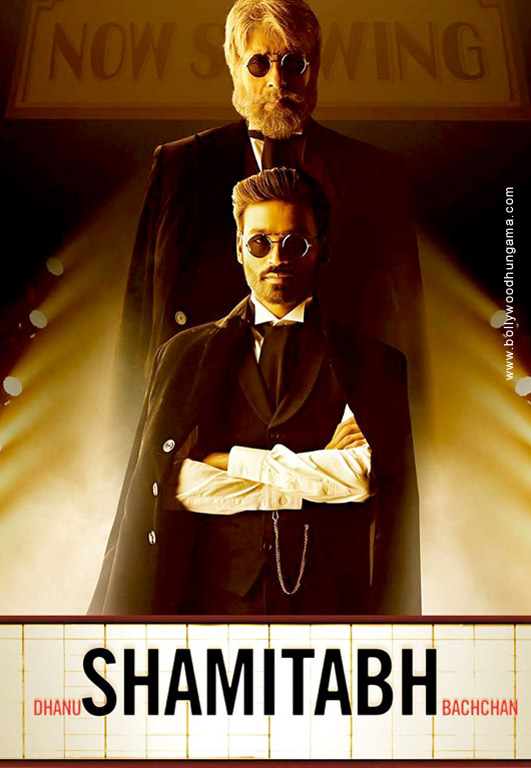Music: Ilaiyaraaja
Lyrics: Swanand Kirkire & Kausar Munir
Music Label: EROS
Expectations:
A legend like Ilaiyaraaja is at the helm of the music. So the music should be situational and for Hindi audiences we want a couple of mass-friendly pan-Indian tracks.
Music:
Amitabh Bachchan - never mind the electronic processing of his voice! - has never sounded so mellifluous as a singer than in 'Piddly', a catchy number that grips you with its gentle yet romantic melody and lyrics that go quirkily philosophical - if that's the word. Lyricist Swanand Kirkire's take on the term and the entire concept of the song is praiseworthy and novel. The actor-singer also infuses a dismissively sardonic air that is correct in view of the words. Ilaiyaraaja's tune and its orchestral treatment are outstanding - infectious and yet deeply melodious.
Suraj Jagan gets his career's biggest break as he shoulders three songs in this six-pack (!) album. The album starts out with his 'Ishq -E- Fillum', in which the lyrics speak of cinema being an all-pervading entity in our life. Though the images are scattered as rhyme is more important than reason and we have lines like 'Baal fillum hai haal fillum', this is a clear tribute to Indian society's obsession with movies.
Suraj also gets to sting, sorry, sing in 'Thappad' which explores the entire thought-process and business of slapping someone! The lyrics are again amusing ('Tameez ki kameez mein / Kyoon haath ko chhupana / Be-akal shakal pe seedhe / Haath ka nishana'), but the tune is that wee bit very 'South'. However, the beats partly make up for this.
Jagan, luckily, gets to sing rather than scream, as is his lot in most of his Mumbai composers' songs. In the short ditty 'Lifebuoy' he actually sounds a bit like Amitabh Bachchan by trying to infuse a certain depth in his tenor. Balki, the film's director, clearly tributes his background in the ad world by using the cult Lifebuoy soap anthem as starting point.
We then look at Shruti Haasan's resonant, raw and rock vocals in the song 'Stereophonic Sannata' which finds Swanand at his quirkiest. An ode to silence, it freely mentions some of the leading names in lyrics writing and vocals (including Swanand himself and Shruti) and begins in a quaint sing-song way. Meanings get short shrift ('Let's do the sannata') in this number that obviously has a point to make about the reverberation of silence within the film.
Last, but not the least, is the title-track, 'Sha Sha Sha Mi Mi Mi' (sung by Cara Lisa Monteiro), whose prelude music is truly exceptional. Cara Lisa's voice has been heard in backing vocals and English portions of Hindi songs for years now but has an amazingly silken texture. However, she could have been sharper in her enunciation of the Hindi words. This time, the song is written by Kausar Munir, but what stands out and dominates besides the vocals is the brilliantly-composed and orchestrated string of music pieces and the smooth flow.
The star of the show is undoubtedly the composer, who shows that someone who is over a 1000 films old is still far from jaded in his skills as composer and in his sense of sound and arrangement. Ilaiyaraaja, in short, separates the men from the boys. To borrow from Kausar's lyrics, what a star!
Overall:
The score's so quirky that we hope that the film justifies it. Though not very appetizing for audiences today (unless it grows with the film), it is typical of our veteran composers who understood that a film soundtrack cannot stand in isolation as a 'hit" showcase of the music director's ability to impress the countdowns. The lyrics, we guess, could have been less "Gulzar-ian", a term coined by a veteran poet-lyricist as a term for songs he stated were "too quirky, metaphor-heavy or esoteric."
Our Pick:
'Sha Sha Sha Mi Mi Mi', 'Piddly', 'Sannata'


